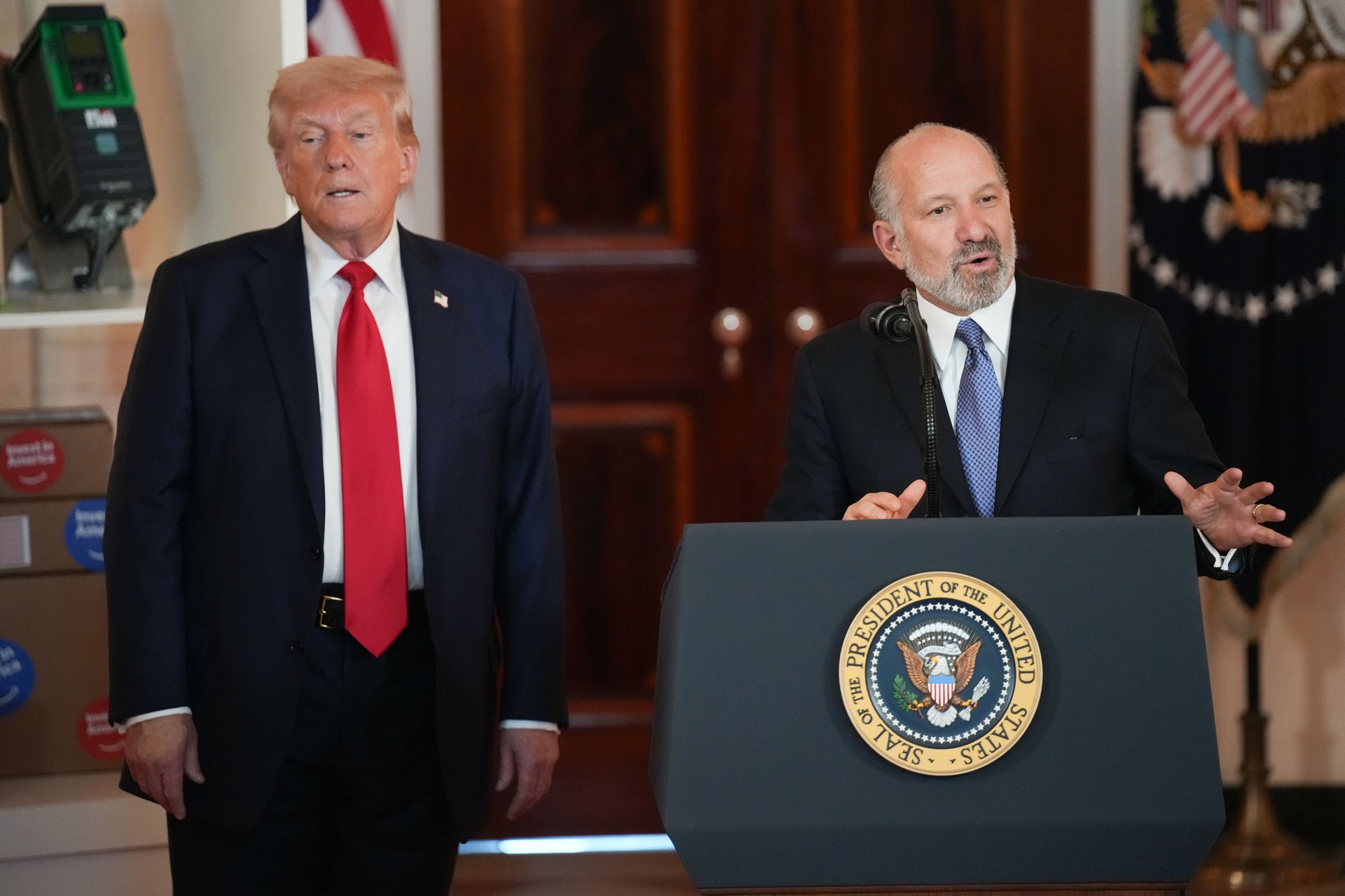Trump team’s trade war concession: Not everything can be made in America
A new executive order concedes that the U.S. can't grow bananas or coffee in large amounts. Now they qualify for zero tariffs

President Donald Trump listens as Commerce Secretary Howard Lutnick speaks at the White House in April 2025 in Washington, DC. (Andrew Harnik/Getty Images)
President Donald Trump signed an executive order on Friday listing a range of products that qualify for exemptions from current tariffs. It acknowledges not everything can be made or grown in the United States.
Suggested Reading
The directive sets aside 45 categories for zero tariffs, which went into effect Monday for countries that have already struck a framework trade deal with the U.S. It altered the structure of Trump's global tariffs for "aligned partners" and concedes the U.S. cannot be a self-sufficient country in two specific categories:
Related Content
- Unavailable natural resources and closely related derivative products;
- Certain agricultural products not grown or produced in sufficient quantity in the United States to meet domestic demand
Much of the Trump administration's trade policy has been driven by a desire to restore U.S. manufacturing capacity to its 20th century heights. However, the blunt use of double-digit universal tariffs on foreign governments ensnared many goods that simply can't be produced in large amounts in the U.S, such as avocados and bananas, among other items.
“If you grow something and we don’t grow it, that can come in for zero,” Lutnick told CNBC in late July. “So if we do a deal with a country that grows mangoes or pineapples then they can come in without a tariff … coffee and cocoa would be other examples of natural resources.”
Now all those items are in the White House's zero-tariff list in the event of a trade deal with the Trump administration. Other goods on the list include pineapples, avocados, guava, and maté, a caffeinated tea popular in Argentina and Uruguay.
"I think there's a way in which he has kind of quietly shown a little bit of willingness to bend some of his trade policy economic reality," Peter Harrell, a former White House aide on international economics to President Biden, recently told Quartz. "I think there's actually a growing body of evidence that [Trump] is willing to exempt products where he thinks the costs will get out of hand."
Harrell cited the litany of carveouts that the Trump administration listed when it imposed 50% tariffs on Brazil, which included Brazilian nuts and specific aircraft parts. Other economists echoed that.
"Tariffs can’t bend the laws of nature. Bananas need tropics, coffee needs altitude. You can't onshore these things," Justin Wolfers, an economics and public policy professor at the University of Michigan, wrote on X. "The White House just worked this out."
